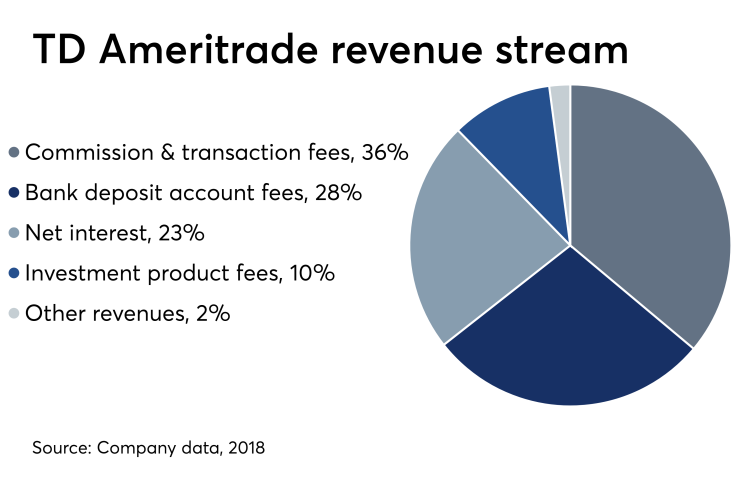In the latest example of how fee compression is rippling through the financial industry, TD Ameritrade is offering free trades on more index funds. The brokerage’s newly expanded line of commission-free ETFs illustrates how quickly firms are competing to offer investment products at the lowest possible price.
The firm has boosted its commission-free ETF offerings to 569 funds spanning approximately 90 Morningstar fund categories. The brokerage is one of the industry’s top providers of passive funds with more than $380 billion in ETF assets under administration.
“We’re committed to providing our clients access to a robust suite of commission-free products,” said Keith Denerstein, director of investment products at TD Ameritrade in a statement.
More than 7,000 RIAs and 11 million retail accounts trade through the brokerage, according to the firm.
The funds include municipals, commodities, index-tracking, countries, single currency, sector, asset allocation and low-cost core offerings. Advisors can also access actively managed ETFs with long-short smart beta and ESG strategies.

The selected funds will become commission free in June, the company said.
ETF inflows surged to $3.4 trillion in the U.S. at the end of 2018, a more than tenfold increase from $237 billion in 2004,
The low-cost brokerage are chasing Vanguard
Overall, both mutual fund and ETFs total net expense ratios declined consistently during the past five years, from 62 basis points in 2014 to only 46 basis points in 2018,
-
A record 186 funds were shuttered last year. What does this mean for the future of the industry?
January 7 -
Brexit, worries about trade wars and rising interest rates have prompted a selloff in developed country stocks.
January 16 -
The funds include a wide range of offerings from emerging markets to precious metals, multi-strategy and REITs.
January 14
“Particularly within index funds, product manufacturers see cost as a competitive edge and increasingly use fees as a marketing tool,” said Cerulli associate director Brendan Powers in an earlier statement about the research. “As ETF issuers aggressively jockey to offer the lowest fees, we begin to see them filing for — and now launching — zero- or negative-fee ETFs.”
Last month, Social Finance, the online lender specializing in student loan refinancing,
Eileen Norton, director of investment solutions at TD Ameritrade, said the brokerage plans to continue updating its commission-free offerings. “It doesn’t end here,” she said in a statement.





